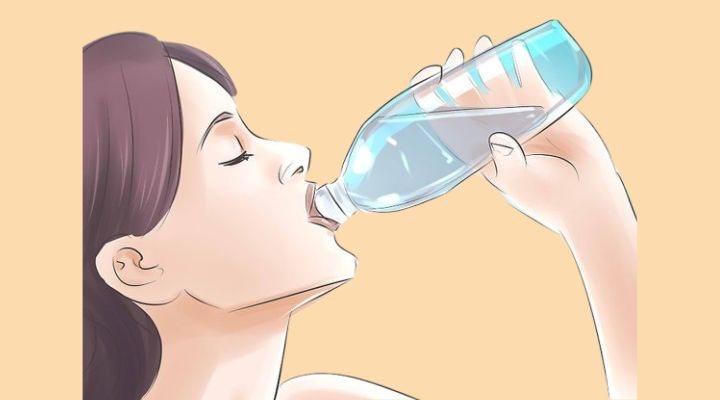20 Signs That Indicate the Body is Not Getting Enough Water
Water is essential for the proper functioning of the human body, making up about 60% of an adult’s body weight. It plays a critical role in maintaining bodily functions, such as regulating temperature, transporting nutrients, and flushing out toxins. Dehydration occurs when the body loses more water than it takes in, and even mild dehydration can have significant negative effects. Here are 20 signs that may indicate the body is not getting enough water:
- Thirst
Thirst is the most obvious and immediate sign of dehydration. When the body needs more water, it sends signals to the brain to encourage fluid intake. If you are constantly feeling thirsty, it is a clear indication that your body is not receiving enough hydration.
- Dry Mouth and Throat
A dry or sticky feeling in the mouth or throat often accompanies thirst. This is due to reduced saliva production, which requires adequate hydration. A lack of saliva can also lead to bad breath and difficulties in swallowing food.
- Dark-Colored Urine
Color of urine is a useful measure of body water content. When adequately hydrated, urine tends to be light yellow or almost clear. Dark yellow or amber-colored urine suggests that the body is conserving water and indicates dehydration.
- Infrequent Urination
A decrease in the frequency of urination can signal dehydration. If you find that you are not urinating every few hours, it could mean that your body is trying to retain as much water as possible to prevent further fluid loss.
- Fatigue and Low Energy Levels
Dehydration can cause a drop in blood volume, leading to decreased oxygen and nutrient delivery to cells. This results in tiredness, sluggishness, and a lack of energy, even after adequate rest.
- Headaches
Dehydration can cause headaches or migraines due to a reduction in blood and oxygen flow to the brain. This can lead to a tightening of the brain’s blood vessels, causing pain and discomfort.
- Dizziness or Lightheadedness
A lack of water can reduce blood volume, leading to low blood pressure. This can cause dizziness, lightheadedness, or fainting, especially when standing up quickly after sitting or lying down.
- Dry or Flaky Skin
The skin is the largest organ in the body and requires a substantial amount of water to maintain its elasticity and moisture. Dehydrated skin may appear dry, rough, or flaky and may lose its natural glow.
- Rapid Heartbeat
Dehydration can cause an increase in heart rate. When there is less fluid in the body, the heart has to work harder to pump blood and maintain circulation, resulting in a faster heartbeat.
- Muscle Cramps and Spasms
Insufficient hydration affects the balance of electrolytes, such as sodium and potassium, which are necessary for muscle function. This imbalance can lead to muscle cramps, spasms, or even twitching, particularly during or after exercise.
- Dry and Sunken Eyes
A lack of water can affect the eyes, causing them to appear dry, red, or sunken. Dehydration reduces tear production, leading to dryness and irritation of the eyes.
- Digestive Issues and Constipation
Water is crucial for digestion, helping to break down food and absorb nutrients. Insufficient water intake can slow down digestion and lead to constipation. Additionally, dehydration can result in acid reflux and heartburn due to a lack of water needed to produce digestive juices.
- Joint Pain and Stiffness
Joints contain cartilage, which is made up of about 80% water. Dehydration can reduce the shock-absorbing ability of cartilage, leading to joint pain, stiffness, or discomfort, especially after physical activity.
- Decreased Mental Focus and Cognitive Function
The brain is approximately 75% water, and even mild dehydration can affect its function. Dehydration can impair concentration, memory, and cognitive performance, leading to confusion, forgetfulness, and difficulty focusing.
- Mood Swings and Irritability
Dehydration can affect the brain’s ability to regulate mood. It can lead to irritability, anxiety, or feelings of depression. Staying well-hydrated can help maintain emotional stability and improve mood.
- Dry Lips
Chapped or cracked lips are a common sign of dehydration. Since the skin on the lips is thin and delicate, it can quickly show signs of water deficiency. Hydrating from the inside is crucial for maintaining soft and smooth lips.
- Hunger Pangs
Sometimes, the body can mistake thirst for hunger. If you feel hungry shortly after eating or experience cravings for sugary foods, it could be a sign that your body is actually asking for water, not food.
- Overheating and Heat Intolerance
Water helps regulate body temperature through sweating. A lack of water can impair this ability, making it harder for the body to cool down during exercise or in hot environments, leading to overheating or heat intolerance.
- Decreased Physical Performance
Dehydration can lead to a decline in physical performance. When muscles are not adequately hydrated, they can tire more quickly, and the risk of injury increases. This is particularly crucial for athletes and those who exercise frequently.
- Immune System Weakness
Chronic dehydration can weaken the immune system, making the body more susceptible to infections and illnesses. Adequate hydration supports the transport of nutrients and oxygen to cells and helps remove waste, which is vital for a strong immune response.
Conclusion
Dehydration can manifest in various ways, affecting everything from cognitive function to physical performance. Recognizing these signs early and maintaining adequate water intake is crucial for overall health and well-being. Drinking enough water every day is a simple yet effective way to support the body’s complex systems, ensuring they function optimally and keeping dehydration at bay.


